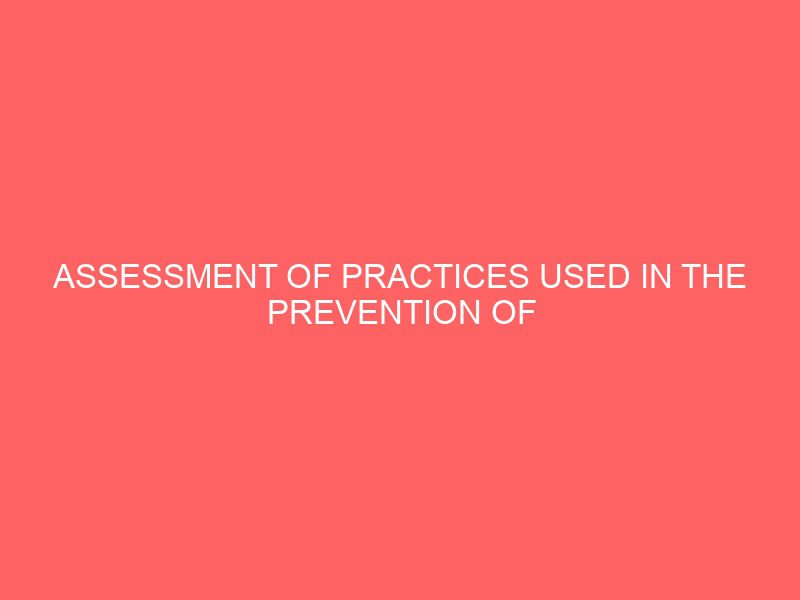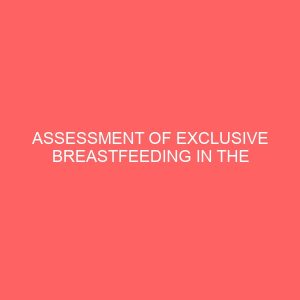Description
Abstract
This project material looks at Assessment of practices used in the prevention of Lassa fever infection among health workers in Madonna University Teaching Hospital. This study was set out to assess the practices used in the prevention of Lassa fever infection among health workers in Madonna University Teaching Hospital, Rivers State. It also explored the level of preparedness and work habits in dealing with Lassa fever virus. The study utilized quantitative research method design and it involved purposely selected nurses as study participants. The descriptive quantitative survey design was used and 160 nurses were employed as the study participants for data collection. Data analysis was done using simple percentages, frequency and Statistical Package for Social Sciences (SPSS 20). Mean age of the study participants was 31.6 years. The practice level of health workers about Lassa fever was moderately high. There were mixed attitude and perceptions of health workers towards Lassa fever. There were key risk factors that predisposed health workers to exposure to Lassa fever which include contact with sick people outside the facility (54.1%), nature of contact (43.8%), setting of exposure (77.5%), family members confirmed cases (2.5%) and neighbors confirmed cases. Certain preventive measures and standard precautions were put in place to manage Lassa fever at the Madonna University Teaching Hospital, including Personal Protective Equipment (PPE). Health care workers were at high risk for Lassa fever virus infection during service provision especially when providing injection, placing intravascular device, providing medication, and emptying bed pan. Therefore, the need to address these risks and others cannot be overemphasized, as measures to prevent and manage future outbreaks and consequences that come along. Thus health authorities at all levels must ensure heightened vigilance and improved occupational safety measures, especially in the health facilities to prevent and manage Lassa fever infection among health care workers.








Reviews
There are no reviews yet.